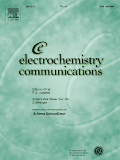
ELECTROCHEMISTRY COMMUNICATIONS
Scope & Guideline
Advancing Electrochemical Insights for Tomorrow's Innovations
Introduction
Aims and Scopes
- Electrochemical Energy Storage and Conversion:
Research on various electrochemical systems, including batteries, supercapacitors, and fuel cells, focusing on the development of novel materials and architectures to enhance performance and efficiency. - Electrocatalysis:
Studies on catalysts for electrochemical reactions, particularly for oxygen reduction and hydrogen evolution, emphasizing the design and synthesis of efficient and sustainable materials. - Electrochemical Sensors:
Development of advanced electrochemical sensing technologies for detecting biomolecules, pollutants, and other analytes, with a focus on improving sensitivity, selectivity, and portability. - Environmental Electrochemistry:
Research addressing electrochemical processes for environmental remediation, including the detection and degradation of pollutants, and the development of sustainable materials and methods. - Fundamental Electrochemical Studies:
Investigations into the fundamental aspects of electrochemical reactions, including surface phenomena, interfacial dynamics, and reaction mechanisms, often employing advanced characterization techniques.
Trending and Emerging
- Sustainable Energy Solutions:
There is a notable increase in research focused on renewable energy sources and sustainable electrochemical systems, including hydrogen production, CO2 reduction, and energy storage technologies that utilize eco-friendly materials. - Advanced Materials for Electrochemistry:
Emerging materials such as MXenes, metal-organic frameworks, and biomass-derived carbons are gaining attention for their unique properties and potential applications in a variety of electrochemical systems. - In Situ and Operando Characterization Techniques:
The use of advanced characterization techniques, such as in situ and operando methods, is on the rise, enabling researchers to gain deeper insights into electrochemical processes and material behaviors during operation. - Nanostructured and Hierarchical Architectures:
Research is increasingly focused on the design and synthesis of nanostructured and hierarchical materials for enhanced electrochemical performance, particularly in energy storage and catalysis. - Bioelectrochemistry and Biocatalysis:
There is a growing interest in the application of bioelectrochemical systems and biocatalysts for energy conversion and environmental remediation, reflecting a trend towards integrating biological processes with electrochemical technologies.
Declining or Waning
- Traditional Battery Technologies:
Research specifically focused on conventional lithium-ion battery technologies is decreasing, likely due to the growing interest in alternative battery systems such as sodium-ion and solid-state batteries. - Single-Use Electrochemical Devices:
The development of disposable electrochemical devices is becoming less frequent, possibly due to increasing demands for sustainability and the lifecycle assessment of materials used in sensor technologies. - Basic Electrochemical Theory:
Papers focusing solely on theoretical aspects of electrochemistry without application to practical systems or materials are becoming less common, as the field shifts toward applied research with tangible outcomes.
Similar Journals
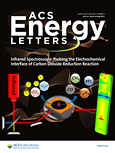
ACS Energy Letters
Illuminating the Path to Sustainable Energy SolutionsACS Energy Letters, published by the American Chemical Society, is a prestigious peer-reviewed journal designed to disseminate innovative and impactful research in the multifaceted field of energy science. Since its inception in 2016, the journal has quickly ascended to a remarkable status, achieving Q1 rankings in critical categories including Chemistry (miscellaneous), Energy Engineering and Power Technology, Fuel Technology, Materials Chemistry, and Renewable Energy, Sustainability and the Environment as of 2023. With an emphasis on rigorous research methodologies and interdisciplinary collaboration, ACS Energy Letters serves as a vital platform for scholars, professionals, and students to explore cutting-edge research that addresses contemporary energy challenges. While maintaining a commitment to advancing knowledge without open access, it offers profound insights into sustainable practices and innovative solutions that are crucial for the future of energy systems globally. The journal's esteemed standing in the chemical and energy sectors underscores its significance, making it an essential resource for anyone invested in the advancement of energy technologies and sustainable practices.
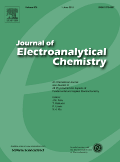
Journal of Electroanalytical Chemistry
Catalyzing Progress in Electroanalytical TechniquesThe Journal of Electroanalytical Chemistry, published by Elsevier Science SA, stands as a leading platform for the dissemination of cutting-edge research in the field of electroanalytical science. With an impressive impact factor that reflects its esteemed reputation—ranking in the Q1 category for both Analytical Chemistry and Chemical Engineering, alongside a strong presence in Electrochemistry—this journal provides a vital resource for researchers, professionals, and students alike. Covering topics from fundamental electrochemical processes to innovative analytical techniques, the journal aims to foster an in-depth understanding and discussion of contemporary advancements in electroanalytical methodologies. Operating under a model that prioritizes quality and rigor, it facilitates access to high-quality manuscripts and reviews that contribute to the advancement of the field. For over six decades, from 1959 to 2024, it has played an intrinsic role in shaping the landscape of electrochemistry, continually driving forward the frontiers of knowledge and application.

Portugaliae Electrochimica Acta
Empowering Researchers in the Electrochemical LandscapePortugaliae Electrochimica Acta is a distinguished journal dedicated to the field of electrochemistry, published by the SOCIEDADE PORTUGUESA ELECTROQUIMICA. With a notable ISSN of 0872-1904, this journal serves as a vital resource for researchers, professionals, and students interested in advancing their understanding of electrochemical processes. Though it is currently categorized in Q4 in the 2023 Electrochemistry rankings, the journal contributes significantly to the academic discourse from its base in Coimbra, Portugal. The journal's timeline spans actively from 2008 to 2025, ensuring a sustained engagement with emerging research. While the journal does not offer open access options, it remains an authoritative source noted for promoting innovative electrochemical research and fostering academic connections within the discipline. Researchers are encouraged to submit their findings and explore the latest contributions to this expanding field.

International Journal of Electrochemical Science
Advancing the frontiers of electrochemical research.International Journal of Electrochemical Science is a peer-reviewed journal dedicated to disseminating cutting-edge research in the field of electrochemistry. Published by Elsevier in Serbia, this journal serves as a vital platform for scientists and researchers to explore innovative electrochemical techniques, processes, and applications. With an ISSN of 1452-3981, it has been a respected source of scholarly articles since its inception in 2006 and continues to bridge the gap between theoretical advancements and practical implementations up until 2024. Notably, it holds a Q4 quartile ranking in the field of electrochemistry and ranks 41 out of 60 in the Scopus database, situating it within the 32nd percentile among its peers. The journal champions open academic discourse, contributing significantly to the advancement of knowledge in electrochemical sciences, making it an essential resource for researchers, professionals, and students alike who are striving towards new discoveries and innovations.

ACTA CHIMICA SINICA
Unveiling the Future of Chemistry through Rigorous ResearchACTA CHIMICA SINICA, published by SCIENCE PRESS, is a distinguished peer-reviewed journal in the realm of Chemistry, specifically focusing on general and miscellaneous chemistry fields. Since its inception in 1982, the journal has consistently contributed to the advancement of chemical research in China and beyond, maintaining a reputable standing within the academic community, evidenced by its 2023 Scopus ranking of #197 out of 408 in its category. With a current impact factor placing it in the Q3 quartile, ACTA CHIMICA SINICA aims to disseminate innovative research findings, covering a wide spectrum of topics within the discipline. Although it is not an open-access journal, it offers various access options through institutional subscriptions, ensuring that its high-quality content is available to a broad audience. Researchers, professionals, and students alike will find this journal a vital resource for keeping abreast of developments in the field and for contributing their own findings to an engaged scientific community.
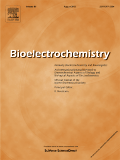
BIOELECTROCHEMISTRY
Unveiling the Synergy of Biology and ElectrochemistryBIOELECTROCHEMISTRY, published by Elsevier Science SA, is a leading academic journal that focuses on cutting-edge research in the fields of biophysics, electrochemistry, and miscellaneous medicine with a commendable impact factor reflecting its significance in the scientific community. Established in 2000 and continuing until 2025, the journal resides in the Netherlands and has been ranked in the Q2 category across various relevant disciplines, such as Biochemistry, Genetics and Molecular Biology, and Physical and Theoretical Chemistry, showcasing its quality and relevance. With a Scopus ranking that places it among the top journals in its categories—including an impressive 12th rank in Electrochemistry—BIOELECTROCHEMISTRY serves as a critical platform for researchers and professionals seeking to disseminate and engage with innovative findings. While the journal does not offer Open Access options, its reputation and reach make it an essential reference point for anyone involved in bioelectrochemical studies. The journal’s commitment to advancing knowledge in electrochemical applications in biological systems ensures its esteemed position in academia.

JOURNAL OF SOLID STATE ELECTROCHEMISTRY
Elevating the Standards of Solid-State ResearchThe Journal of Solid State Electrochemistry is a leading peer-reviewed journal dedicated to advancing the understanding and application of solid-state electrochemical systems. Published by Springer, this prestigious journal has been a staple in the field since its establishment in 1997, with an impressive range of topics covering Condensed Matter Physics, Electrochemistry, and Materials Science. It holds a notable Q2 category quartile ranking in several disciplines, including Electrical and Electronic Engineering, and boasts significant Scopus rankings—ranked #28 in Electrochemistry, showcasing its credibility and impact in the field. With a mission to disseminate high-quality research and innovative methodologies, the journal aims to foster cross-disciplinary collaboration among researchers, professionals, and students. While not open access, articles published in the Journal of Solid State Electrochemistry are integral for those exploring cutting-edge technologies through theoretical and practical approaches, ultimately enhancing our understanding of energy systems and materials' performance. Located in Germany, the journal continues to thrive internationally, providing a robust platform for scholarly communication.
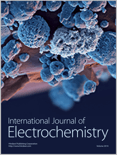
International Journal of Electrochemistry
Connecting researchers and professionals in the electrochemical landscape.The International Journal of Electrochemistry, published by HINDAWI LTD, serves as a premier outlet for cutting-edge research in the expansive field of electrochemistry. With an ISSN of 2090-3529 and an E-ISSN of 2090-3537, this open-access journal has been contributing to the advancement of scientific knowledge since 2011, making its content freely available to researchers, industry professionals, and students around the globe. The journal aims to foster innovation by disseminating high-quality research articles, reviews, and technical notes that encompass a wide range of topics from fundamental electrochemical principles to practical applications in energy storage, sensors, and material development. With a focus on promoting interdisciplinary collaboration and advancing the understanding of electrochemical systems, the International Journal of Electrochemistry is a vital resource for anyone involved in electrochemical research and its applications.
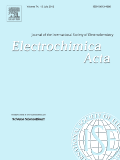
ELECTROCHIMICA ACTA
Advancing the Frontiers of Electrochemical ScienceELECTROCHIMICA ACTA is a prestigious academic journal dedicated to the field of electrochemistry and chemical engineering. Published by PERGAMON-ELSEVIER SCIENCE LTD, this journal stands out with its impressive impact factor and is categorized in the top quartile (Q1) for both Chemical Engineering and Electrochemistry in 2023, further cementing its role as a leading venue for cutting-edge research. With a publication history dating back to 1959 and converging into 2024, it has established a substantial archive of influential articles that explore various aspects of electrochemical processes, materials, and applications. Researchers and professionals in the field benefit from the journal’s high visibility, as it ranks remarkably well according to Scopus metrics, with a position in the 90th percentile for General Chemical Engineering and 84th percentile for Electrochemistry. Although ELECTROCHIMICA ACTA does not currently offer open access, it continues to serve as a vital resource for those seeking to expand their knowledge and explore innovative developments in electrochemical science.

Journal of Electrochemical Science and Technology
Catalyzing Innovation in Electrochemical TechnologiesJournal of Electrochemical Science and Technology, with the ISSN 2093-8551, is a distinguished publication in the field of electrochemistry, disseminated by the Korean Electrochemistry Society. Based in South Korea, the journal has made significant strides since its inception in 2014, showcasing groundbreaking research that spans various applications of electrochemical science. Currently ranked in the Q2 category for Electrochemistry, it occupies an emerging position within the academic community, evidenced by its Scopus rank of #25 out of 60 in the Electrochemistry domain, placing it in the 59th percentile. Although the journal follows a traditional access model, it remains committed to providing high-quality, peer-reviewed content that fuels innovation and scholarly dialogue. With objectives firmly rooted in advancing the understanding and application of electrochemical phenomena, this journal serves as a crucial resource for researchers, professionals, and students alike, striving to push the boundaries of the electrochemical sciences.